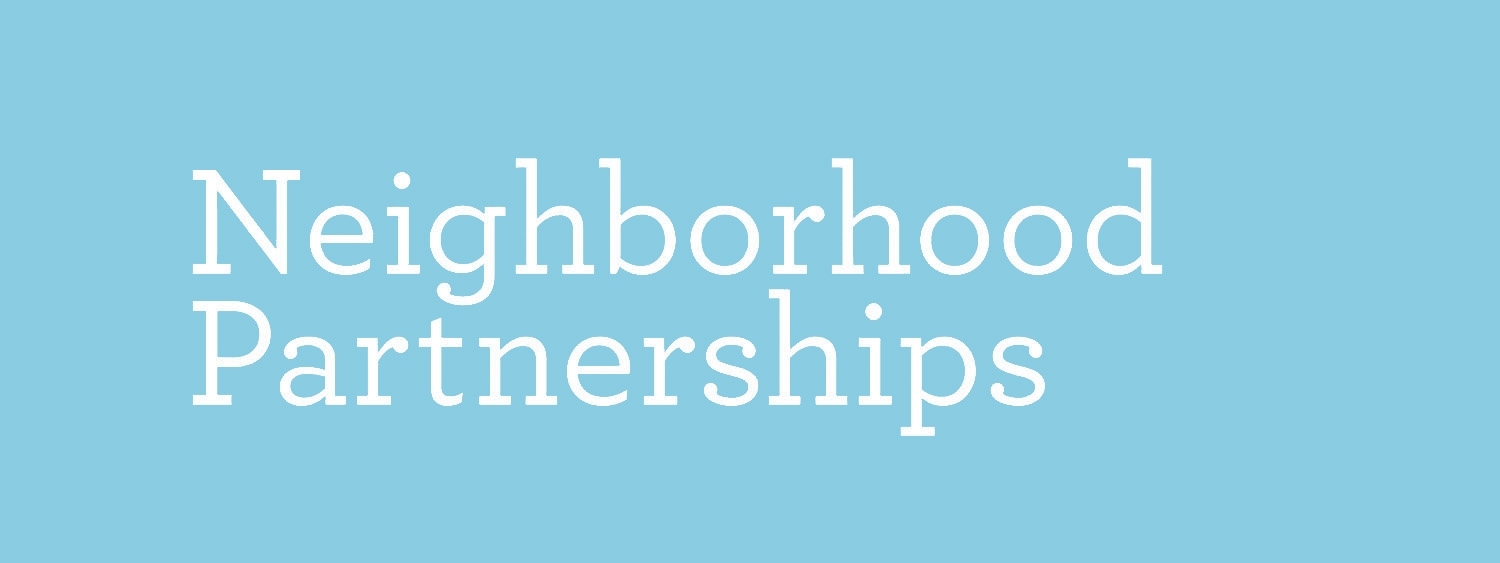2019 Housing Alliance Endorsements
In addition to our priority agenda, the Housing Alliance supported a number of proposals from members, advocates, Legislators, and our housing finance agency, Oregon Housing and Community Services. These proposals create resources and programs to help people access stable housing, develop more affordable housing, stabilize families in their homes, and address homelessness. In 2019, the Housing Alliance endorsed and supported:
- Increasing our supply of permanent supportive housing across the State (SB 5512, HB 5005): Permanent supportive housing is one of the key solutions to ending homelessness for people who experience health conditions, mental health issues, or addictions disorders. Success! The Legislature committed $50 million in General Obligation Bonds to help develop new supportive housing across Oregon. The budget for OHA committed project based rent assistance vouchers to the projects.
- Targeted resources to address child and family homelessness (SB 5512, HB 2032): Success! The Legislature committed $10.5 million to address child and family homelessness through HB 2032. In addition, some resources ($6.5 million) were designated to go to the existing Housing Stability Program, distributed to Community Action agencies to serve families receiving assistance from DHS.
- Expand access to information and referral (HB 2650): 211Info provides information and referral services. HB 2650 expands services to 24 hours a day, seven days a week and adds staff in seven local communities. Outcome: This bill did not move forward during this legislative session.
- Improve Transitional Housing Campgrounds (HB 2916): This bill makes technical changes to transitional housing campgrounds, to increase access to safe places to sleep for people experiencing homelessness. Passed!
- Support for General Assistance (HB 2302, HB 5026): General Assistance provides assistance to people experiencing homelessness and waiting for federal disability determination. In 2019, the Legislature continued support for the General Assistance program, but did not expand or improve the program.
- Expand Oregon Domestic and Sexual Violence Services Fund (SB 5515): Increase funding for people seeking safety from violence by adding $10 million to support emergency shelter, hotline services, and staff support.
- End the debt based suspension of drivers licenses (HB 2614): People who cannot pay traffic related fines are often subject to a debt based suspension of their drivers license. This bill would end that practice. Outcome: This bill did not move forward during this legislative session.
- Addressing hunger issues through the Oregon Hunger Response Fund (HB 5026): All too often, families face choices between putting food on the table and paying the rent. The Oregon Hunger Response Fund provides critical funds to support the regional network of emergency food banks and food providers across Oregon. Success! The Legislature committed $4.2 million in general fund to maintain this vital network and ensure people have food.
- Earned Income Tax Credit Renewal and Expansion (HB 3028): The Earned Income Tax Credit (EITC) helps low and moderate income workers with a boost to their household budgets. In 2020, the state EITC will sunset. In 2019, advocates will be seeking to renew the credit, as well as expand the credit. Currently the state EITC is 8% of the federal credit for most eligible recipients, and 11% of the federal credit for eligible recipients with young children (under age 3). Advocates will be seeking to both renew the state EITC, as well as increase it to 20% of the federal credit for all households, and 25% of the federal credit for households with children under age 3. Advocates will also seek to make the state credit available to households with a federal tax id number but no social security number. The Legislature should renew and raise the EITC.
- Addressing missing middle housing through zoning (HB 2001): Allowing duplexes, triplexes, quads, and cottage clusters in cities of a certain size will increase housing options for changing needs in communities. Historically, single-family only zoning has been used to exclude people who rent their homes and people of color. Passed!
- Supporting Private Market Renters (HB 2006, SB 5512): OHCS and the Governor’s Office are requesting, and the Legislature should approve $20 million, which could include resources for legal assistance, expanding capacity for a tenants’ rights hotline, navigator services for voucher recipients, expansion of rent well classes, and other possible supports for landlords and tenants. Funds would be issued by competitive RFP.
- Renewal of the Agricultural Workforce Housing Tax Credit (SB 202, HB 2137A, HB 2164): The Agricultural Workforce Housing Tax Credit builds affordable housing for agricultural workers and their families, both on-farms and in communities. Success! The Legislature extended the credit until 2026 through HB 2164.
- Address impacts of land use appeal delays (SB 8): Affordable housing is often subject to land use appeals from neighbors due to misperceptions of who lives in affordable housing. This bill would provide attorney’s fees when an affordable housing development is appealed to the Land Use Board of Appeals, and the developer prevails. Passed!
- Allow the transient lodging tax to be used to support affordable housing (SB 595): Today, seventy percent of transient lodging tax revenue is required by law to be used to promote tourism and to build tourism infrastructure. This bill would allow local communities to divert up to 30% of resources currently set aside only for tourism promotion to be used to support needed workforce affordable housing for people earning up to 120% of area median income. Outcome: This bill did not move forward during this legislative session.
- Property Tax Exemption Sunset Renewal (HB 2700, SB 262): Many Oregon communities use local option property tax exemptions to help build and support affordable housing. The Multiple Unit Limited Tax Exemption, or MULTE is used by the City of Portland to support affordable housing. The Legislature should extend the sunset on this exemption for ten years. Passed, in SB 262!
- Greater Oregon Housing Accelerator (HB 2055A, HB 2056): The housing accelerator includes resources and incentives to build housing across Oregon, and fosters collaboration between local governments, employers, and developers. Success. SB 5512 included $5 million for this effort.
- Adequate staffing to support housing development (SB 5512): Currently, OHCS and staff at the Department of Justice which provide services to OHCS are understaffed, causing delays in contracts and project awards. Additional OHCS staff to deliver programs, provide agency support, and enable the department to more efficiently and effectively deliver current programs will increase efficiency across the continuum of housing needs. Success! The Legislature significantly increased OHCS position authority.
- Support local governments to address housing needs (HB 2228A, HB 2075A): HB 2228 creates the Local Government Technical Assistance Fund, which would hire staff to assist local cities and counties in identifying barriers to housing development, and assist in addressing barriers. HB 2075 establishes the Development Readiness Fund at the Department of Land Conservation and Development, and assist the Department in hiring technical assistance to support local governments through housing needs analyses, code audits, and other strategies. Outcome: These bills did not move forward during this legislative session.
- Maintaining Affordable Housing (HB 2002): This bill would continue work started in 2017 to ensure we do not loose existing affordable housing in communities. The bill would extend a right of first refusal to all currently regulated affordable housing. Passed!
- Attainable Market Rate Housing Acquisition Fund (HB 5030): Today, we have low-cost market rate housing which is at risk of loss through sale or extreme rent increases. These properties that offer rents at or below market rate, but are not currently restricted or regulated. Success! The Legislature committed $15 million to create the acquisition fund, which, with joined by private capital, would acquire these types of properties and ensure they remain affordable for a period of time.
- Support Manufactured Home Park Residents and Park Preservation (HB 2164, HB 2136, SB 197, HB 2127, SB 192): There are two existing laws which protect residents of manufactured home parks: A capital gains tax exemption for sale of a manufactured home park to a non-profit, housing authority, or resident owned cooperative; and the tax credits for residents whose park is closed. Success! The Legislature extended the sunset on both the exemption and the credit to protect residents of manufactured home parks through HB 2164.
- Increase coordination and collaboration to preserve and maintain manufactured home parks (HB 2896, HB 2893): This bill creates a working group at OHCS to coordinate work to improve manufactured housing in Oregon. Success! This provision was included in HB 2896.
- Manufactured Home Park Preservation Loan Fund (HB 2896): Across Oregon, manufactured home parks are at risk of sale or closure. This proposal would increase efforts to preserve manufactured home parks by creating a fund to assist with purchase. Success! The Legislature committed $9.5 million to this preservation fund.
- Maintain the Fairview Trust (SB 491): When Oregon closed its institution for people experiencing intellectual and developmental disabilities, the proceeds from the sale of the building were put into the Fairview Trust to create housing opportunities for people. SB 491 will protect and expand access to the trust for this purpose. Passed!
- Manufactured Home Replacement (HB 2896, HB 2894, HB 2895): Today, thousands of Oregonians live in manufactured homes that were built before stricter laws were implemented by the US Department of Housing and Urban Development (HUD) for health, safety, design, and materials. These homes are unhealthy, and extremely inefficient to heat or cool. Replacing homes for people with low and moderate incomes will improve health outcomes and reduce energy costs. Success! HB 2896 included: funding to decommission and deconstruct older manufactured homes ($500,000); and a new loan product which would be a subordinate loan to help homeowners replace their older homes without a significant cost ($2 million). Together, these two proposals would help 100 homeowners replace their older outdated manufactured homes.
- Support the expansion of the Oregon Individual Development Account (IDA) Initiative (HB 2164, SB 790, HB 3133): The Oregon IDA Initiative provides Oregonians with low incomes access to a matched savings program to help purchase a first asset such as a house, an education, or to start or expand a small business. In 2019, the Legislature should expand this Initiative to $15 million.
- Receivership Program Improvements (HB 2285): A technical fix is needed to improve receivership laws to allow cities to more effectively deal with abandoned homes in disrepair. This proposal seeks to allow cities to use a lien to foreclose on properties which are empty and blighted, and then, if the city so chose, they could donate the properties to non-profit developers for rehabilitation. The Legislature should pass this fix. Passed!
- Healthy Homes (HB 2802): Homeowners with low incomes need assistance to maintain their homes safety, and help them to age in place. This proposal includes: funds to be allocated by RFP to provide basic health and safety repairs; funds to maximize federal and state weatherization programs by allowing community action agencies to make critical home repairs in conjunction with federal and state weatherization resources; and a revolving fund to make health and safety improvements, later reimbursed by a CCO or health provider. The Legislature should commit $15 million, including $2 million one-time funds. Outcome: This bill did not move forward during this legislative session.
- Mortgage Interest Deduction Reform (HB 3349): Oregon spends one billion dollars per biennium to subsidize homeownership through the mortgage interest deduction, and most of the benefit goes to people with higher incomes. Modest changes to the mortgage interest deduction would provide resources for critical programs like emergency rent assistance, and supporting access to affordable homeownership. The proposal would phase out the deduction for homeowners earning between $200,000 and $250,000, with homeowners earning more than $250,000 no longer receiving the deduction. In addition, the deduction would no longer be available for second homes. Savings from this change would support children and families experiencing homelessness, and help people access affordable homeownership. Outcome: This bill did not move forward during this legislative session.



